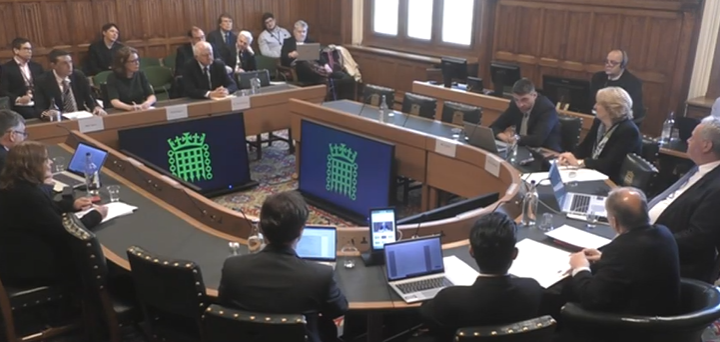Section 151 officers at local authorities who have failed to submit timely financial reports and audits came under fire yesterday (15 May) at a select committee inquiry held at the Houses of Parliament.
The Levelling Up, Housing and Communities (LUHC) Committee held the first evidence session of its inquiry into financial reporting and audit in local authorities, with committee member Natalie Elphicke pressing those giving oral evidence on whether enough individual responsibility was being taken for the “shocking” backlog of unaudited financial accounts.
“I would not accept a situation where I had an external audit not managed, and I would not accept a situation where the external auditor was saying it was the internal team [at fault], and vice versa,” she said. “That would be managed and resolved, and those audited accounts would be completed. So who is responsible and why is someone not responsible [for the current backlog in local government audits]?”
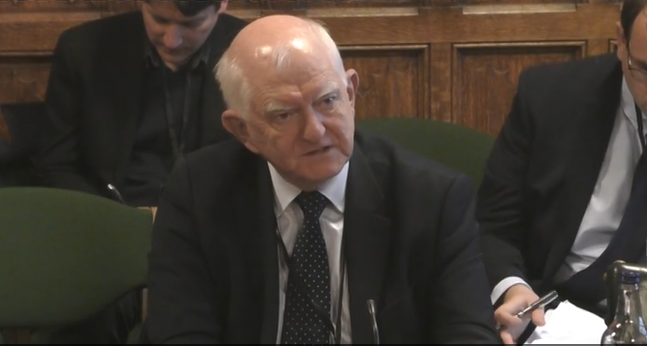
Sir Tony Redmond, author of the Redmond Review; Neil Harris, director of local audit at the Financial Reporting Council (FRC); and Sarah Rapson, deputy CEO, executive director of Supervision, and future chair of the Liaison Committee at the FRC, were those giving oral evidence in the inquiry’s first session.
All three were reluctant to pin blame on individuals in such a complex process, but Harris said that as incoming systems leader for local audit, the FRC would seek to put in “clearer consequences” to address the current backlog “where timeliness hasn’t been achieved”. He also noted that no current statutory backstop date existed in local government accounting, where penalties would be implemented upon failure to hit targets.
But committee member Ben Everitt stated that “it might reasonably be argued that the s151 officer is the single person that is responsible” for the audit being completed, citing the Local Government Act 1972.
Redmond responded: “I think the problem is that the s151 officer does have responsibility for the accounts and to make sure they are closed by 31 May. If they are not closed, and this is the situation at a number of local authorities, one has to look critically at how that has happened. We’ve talked about the capacity of staff to do it and the accounting principles that have to be followed. If they are not closed then you’ve got the auditors having to wait for [that to happen] before they can carry out the audit, and then they might not be able to comply with their own timetable. So it’s really quite complex about the interface between the different parties, and to decide who is accountable ultimately for the failure.
“The integrity of the process is lacking, as to who does what and who should be accountable.”
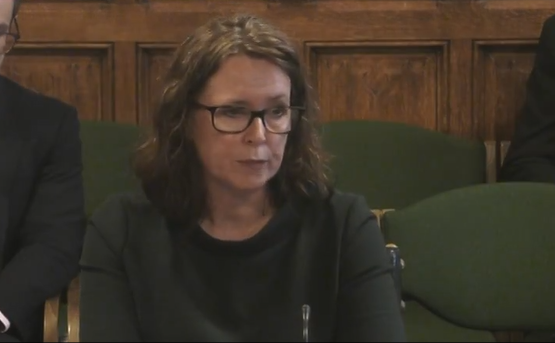
Although Rapson said there was “no one silver bullet to fix the system”, committee chair Clive Betts stated that it would indeed have to be fixed because the current audit backlog was a “complete mess”. Harris agreed that the backlog was “getting to a crisis stage”. He said the FRC would address the matter as an “urgent priority” and come up with viable proposals over the next few months. “We also need to set in place a framework to make sure this doesn’t happen again,” he said.
This framework will be produced by the FRC and the Department for Levelling Up, Housing and Communities (DLUHC) working collaboratively, with the parties aiming to complete it by the end of June, Harris added.
Addressing the issues
The backlog of unaudited financial reports was one of a number of topics discussed at the inquiry, which spanned two sessions on its first day.
In the first session, Redmond, Harris and Rapson were asked about the purpose of financial accounts and the role they play. Among the responses, it was noted that accounts as “a vital part of local democracy” (Rapson) should make sure there is a proper and accurate historical record of spend; that they hold the local authority to account; provide transparency over an authority’s financial situation; and that there is communication with council taxpayers and service users.
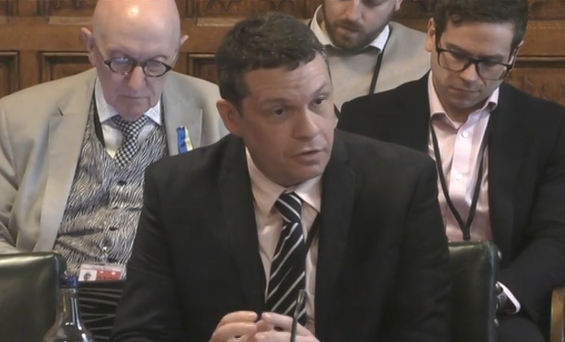
On that last point, Harris said there was an air of “impenetrability” about accounts, which were “increasingly complex” for taxpayers to understand. He welcomed the timing of the inquiry and looked forward to “sustainable reforms”.
The panel was also asked about how financial reports can help decision makers. “The biggest problem is that accounts are perceived to be an audit of historical accounts,” said Redmond. “There is alongside that a duty of going concern, to make sure that there is an acknowledgement that the auditor is looking not only at the actual spend within that year, but also to look beyond, and what that tells the auditor about the financial resilience of the council and how it’s going to be in a position to manage its affairs subsequently. That’s one of the areas that worries me.”
Although some attention is given to future considerations, Redmond said, there is an opportunity “to look more critically at the underlying situation facing a local authority in terms of finances and to test whether or not there is a resilience issue, and to highlight that as quickly as is possible”. A number of local authorities are struggling at the moment and end up in difficulties without this oversight, he added.
15th Annual LATIF & FDs’ Summit – 19 September 2023
250+ Delegates from Local Government & Investment
Early warnings
The lack of an early-warning system to detect such potential struggles was one of the key themes of the session, with Redmond stating that there needed to be much more focus on taking a forward-looking perspective on accounts, rather than just a historical one.
“Some of the difficulties local authorities encounter are underlying issues, so if none of these appear on that particular year’s account, how can an auditor take any action on it?” Redmond questioned.
Harris asked whether the key aspects of a financial report could be summarised for the benefit of service users and taxpayers, so that they could understand the council’s position and challenges.
Redmond also lamented the poor communication between local councils and auditors – an issue which was raised repeatedly by s151 officers and auditors during the preparation of the Redmond Review. Historically, during the days of the Audit Commission, there was much more communication, he said.
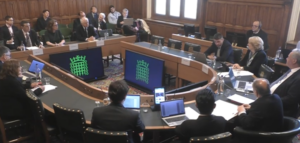
“There isn’t the dialogue and engagement on a continuous basis between the two parties to talk about things that may be going wrong or could go wrong, and that dialogue is so important – there is an opportunity to identify the problem and stop it at source rather than allowing it to get worse,” Redmond stated. “That’s the underlying problem. I hope the informality that used to exist will return.”
Harris argued that there had been examples of auditors flagging early warnings of potential financial problems. “The framework for this exists,” he said, “but we need to encourage the use of this more.”
Rapson stressed the “importance of having the right culture” between council and auditor, and said helping to shift this culture would be one of the key challenges faced by the FRC.
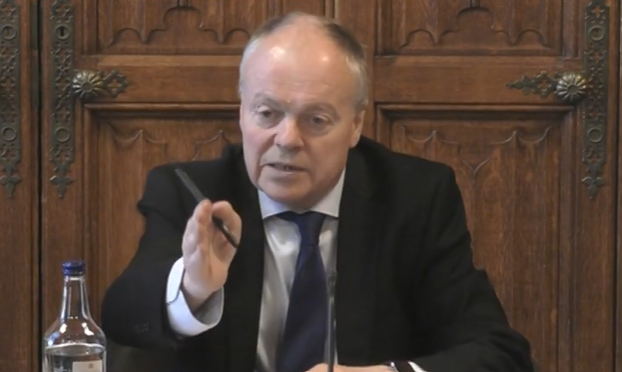
Value for money
The panel also commented on the decrease in focus in financial reporting on whether value for money has been achieved. A council should be able to represent to the public “that we have looked after your money well”, said Redmond. But “that doesn’t happen”.
He said: “There needs to be a recognition that the purpose of audit is to give assurance, and that the council can represent to its public how it has dispersed the money in a way that is consistent with the quality of the service that they are delivering to the public.
“The deployment of resources, then, becomes critical – and that is not unconnected to the purpose of audit. That assurance on best value is as important, in some ways, as how they’ve audited the accounts themselves.”
The second panel of the day featured Ed Hammond, interim chief executive at the centre for governance and scrutiny; Dr Henry Midgley, assistant professor in accounting at Durham University; and Professor David Heald, emeritus professor at the University of Glasgow. A full report on the session can be read here.
—————
FREE weekly newsletters
Subscribe to Room151 Newsletters
Follow us on LinkedIn
Follow us here
Monthly Online Treasury Briefing
Sign up here with a .gov.uk email address
Room151 Webinars
Visit the Room151 channel




